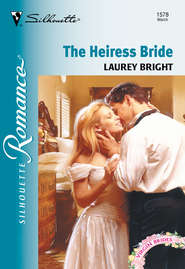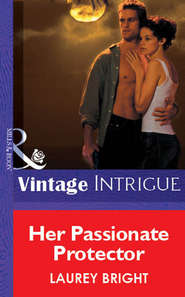По всем вопросам обращайтесь на: info@litportal.ru
(©) 2003-2024.
✖
Dangerous Waters
Автор
Год написания книги
2018
Настройки чтения
Размер шрифта
Высота строк
Поля
After collecting a room key he’d deferred the long hot shower he planned, in favor of a bracing drink. One whiskey, he’d promised himself, then he’d go upstairs and make himself respectable. Or at least as respectable as he was ever likely to look.
Instead he found himself ordering another drink to give him an excuse to ogle a woman, his blood stirring when she leaned forward to speak over the noise of the bar to the man opposite her, revealing the upper slopes of her breasts, the velvet shadow between them. When a waiter approached the table she looked up and smiled. Rogan shifted on his bar stool. That smile would have brought a stone statue to life.
He made the second drink last until after she and her companion had been served with white wine. Her right hand closed around the stem of the glass while her left one rested on the table. Both were bare of rings.
Didn’t mean a thing—she could be in a relationship. Rogan turned his attention to the man, who did sport a gleam of gold on the middle finger of a hand that obviously had scant acquaintance with manual labour. He looked like an accountant or a lawyer. Reminded of his brother and why he was here, Rogan tossed off the remains of his drink, not wanting to think about the reason he’d flown home. Easier to occupy his mind fantasizing about a pretty woman.
He placed the glass on the counter and the barman inquired, “Same again?”
“No. Thanks.” His gaze returning to the woman, Rogan got off the stool and hoisted the bulging pack at his feet up to his shoulder.
The movement must have caught her eye. She looked up and a faint rose color entered her cheeks. She blinked the deep-sea eyes and turned away to stare into her wine, a curve of burnished hair falling across her cheek. Her escort looked up too, his glance taking in Rogan’s disreputable appearance before returning to his companion. He said something and the woman shook her head, then lifted the glass to her lips.
The man looked at Rogan again, warning him off with an ice-blue stare. Rogan slanted him a resigned grin and raised a hand in a half salute as he ambled to the door.
Granger was on time as always. Rogan, showered and shaved and in fresh jeans and a gray T-shirt, found him in the lobby, beside a large Christmas tree decorated with tinsel, colored gewgaws and, in defiance of the New Zealand summer, cotton-wool snowflakes.
The two men gripped hands and Rogan reached out to slap his brother’s shoulder, noting signs of strain about eyes the same vivid aquamarine as his own. “You’re looking pretty flash,” he said, nodding at the suit and discreet silk tie.
Granger allowed himself a tight smile, his eyes glinting. “I don’t suppose you even own a suit. I brought along a spare you can borrow. You’ll be a pall-bearer, won’t you?”
“Uh-huh.” It was the least he could for the old man. “You haven’t put him in a suit, have you?” At a guess, their father had never worn one in his life.
Granger shook his head. “He’d have died all over again.”
Rogan’s laughter cracked in the middle. He clamped his teeth shut and there was a small, awkward silence. Then he said, “Let’s eat.”
Camille Hartley saw two tall, dark-haired men, strikingly good-looking and bearing an unmistakable family resemblance, enter the dining room. It was a moment before she recognized the casually dressed one as the man who had stared at her earlier in the bar.
The piratical beard shadow was gone, revealing clear-cut bone structure and a stubborn jaw, and he’d ruthlessly combed back the unruly mane of his hair, its obstinate waves dampened and glossy under the artificial lights. She had a momentary picture of him standing in the shower, water sleeking his hair and cascading over his sun-browned body. A very good body—his clothes did little to hide the broad shoulders and chest, narrow hips, powerful legs. He looked superbly fit and strong—a man who did something physical for a living.
As if he’d felt her stare, his head turned. She saw an oddly bleak look in the blinding green-blue eyes, and then it vanished, replaced by a gleam of interest, a hint of bold inquiry.
She wrenched her gaze away, directing her attention to what James Drummond was saying. James, from their first meeting yesterday, had shown a rare respect for her mind, and a real though circumspect desire to get to know her more than superficially. Already they had established a tentative rapport. Yet still she was disconcertingly conscious of the other man, needing to breathe carefully, her heart beating faster and sending the blood to warm her cheeks.
Irritated, she inwardly shook herself. She wasn’t in the habit of mentally undressing strange men, and had outgrown blushing years ago.
He was hardly the first male to stare at her, although few were so frank about it. Aware that the gods had been generous to her, she had learned to be chary of men who were less interested in her personality than in flaunting her as some sort of trophy. She’d guess that the unsettling stranger, with his unabashed gaze and knowing grin, was the love-’em-and-leave-’em type, a genus she kept well clear of.
“Try concentrating,” his brother advised as Rogan’s eyes strayed again from the menu in his hands to the woman whose luminous gaze was now fixed on the man opposite her.
Granger half turned to see who he was looking at. “Not that I blame you,” he admitted, “but I’m hungry and we’ve got things to talk about. I’m having the pepper steak.” He closed his own menu.
“Wild pork,” Rogan decided. “And a beer.”
Granger ordered a bottle of red wine, and Rogan sipped his beer while they waited. “Thanks for booking me a room,” he said. “I could have slept on board the Sea-Rogue.”
“I thought you’d appreciate a real bed. Besides, I wasn’t sure the boat would be available. I only collected the key from the police station just before I came here. Have you been down to the wharf?”
“I arrived less than half an hour ago,” Rogan told him with a shake of his head. “Did you get all your business done?” Granger had said he had things to do but would be at the hotel in time for dinner.
“That’s one of the things we should talk about,” Granger said. “I checked out Dad’s will.”
Trust Granger to think of the legalities. Well, someone had to. “He made a will?” That didn’t sound like Barney.
“Years ago. I persuaded him to get it fixed up with one of my colleagues. The police needed to sight it before they would hand over the boat.” Granger paused. “You and I own half of the Sea-Rogue and everything in it.”
“Half each?”
“Half for us two together. He left the rest to Taff.”
“That’s fair enough,” Rogan conceded. Taff “Taffrail” McIndoe had been Barney’s first mate and sailing partner for more than twenty years.
“But if Taff predeceased him,” Granger continued, “his share was to go to his legitimate descendants.”
“Taff isn’t married, and anyway he hasn’t predeceased—”
“He died two months ago. I only found out after the police called about Dad.”
Rogan’s beer glass hit the table with a thud. “Taff died?” It was almost as big a shock as his father’s sudden demise. “How?”
“Liver disease. They were somewhere way out in the Pacific, and by the time Dad finally got him to a hospital at Rarotonga it was too late to do anything.”
While Rogan digested that, Granger added, “You know how he used to put the booze away. It’s a wonder either of them survived as long as they did.”
“Dad never drank at sea.”
“He made up for it on land. According to the pathologist there was enough alcohol in his body to sink a ship.”
“They cut him up?” Rogan’s voice went hoarse.
Granger eyed him levelly. “They have to do an autopsy in a case of sudden death. Besides, he’d been in a fight.”
“You didn’t tell me that!”
“You’d only have stewed about it all the way home. There could be manslaughter charges at least.”
Rogan’s hand closed tightly about his beer. “Against who?”
“Whom.” Granger shrugged. “The police are investigating but they don’t have any witnesses. He was found in an alleyway near here and he’d probably died in the early hours of Sunday. But the cause of death was a heart attack, not the beating he’d taken.”
He’d taken a beating? “There must have been more than one of them.” Barney Broderick had been a big man, toughened by a life at sea.
“Dad wasn’t getting any younger,” Granger reminded him, “and he’d have been reeling drunk.”
“He never said anything about having a dicky heart…did he?”
“You know he wouldn’t admit to being less than a hundred percent healthy.” Barney had indiscriminately labeled all doctors quacks and used their services only in the direst need. “He might not even have known.”











